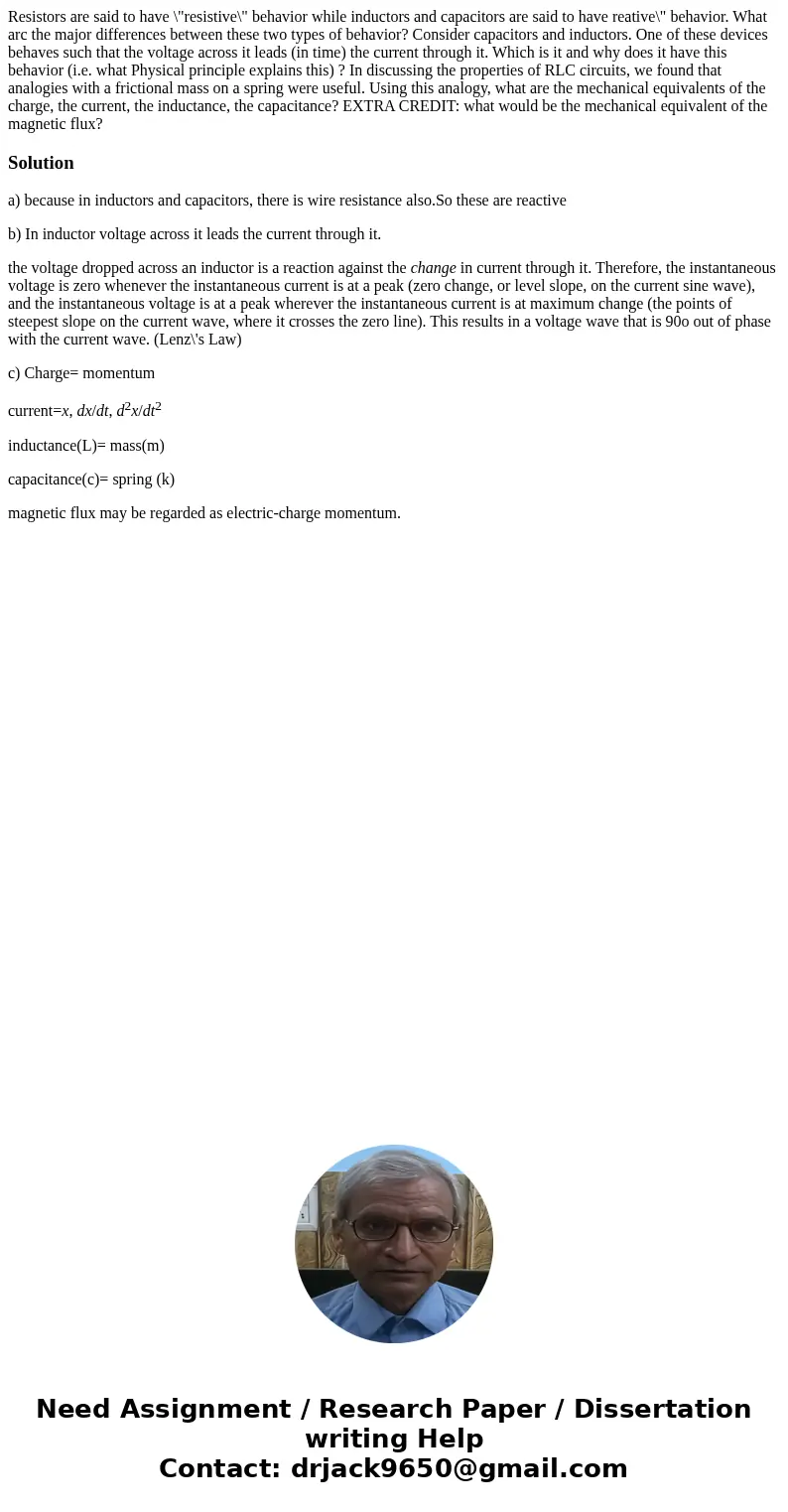Resistors are said to have resistive behavior while inductor
Solution
a) because in inductors and capacitors, there is wire resistance also.So these are reactive
b) In inductor voltage across it leads the current through it.
the voltage dropped across an inductor is a reaction against the change in current through it. Therefore, the instantaneous voltage is zero whenever the instantaneous current is at a peak (zero change, or level slope, on the current sine wave), and the instantaneous voltage is at a peak wherever the instantaneous current is at maximum change (the points of steepest slope on the current wave, where it crosses the zero line). This results in a voltage wave that is 90o out of phase with the current wave. (Lenz\'s Law)
c) Charge= momentum
current=x, dx/dt, d2x/dt2
inductance(L)= mass(m)
capacitance(c)= spring (k)
magnetic flux may be regarded as electric-charge momentum.

 Homework Sourse
Homework Sourse